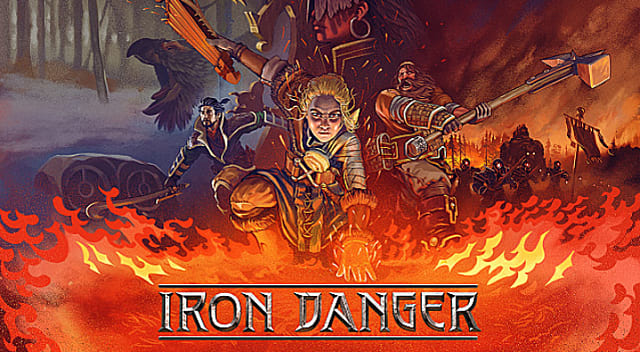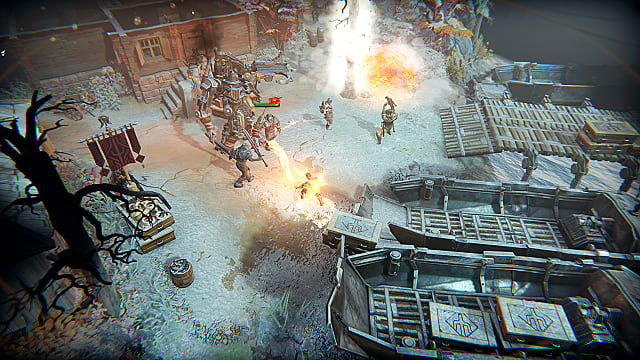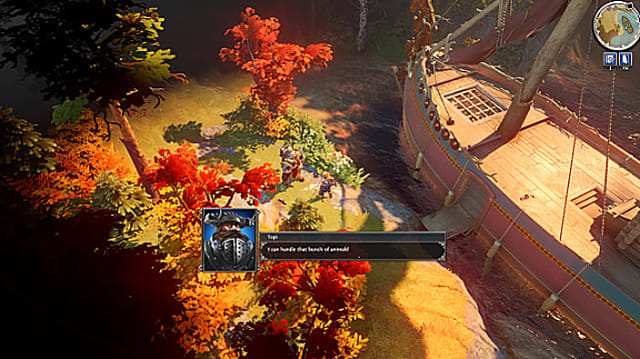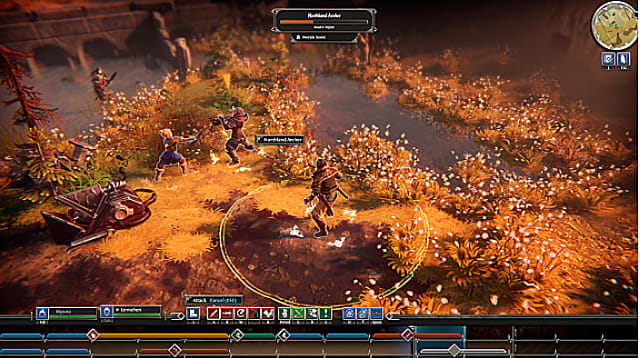
You will die in Iron Danger. Often. Enemies hit extremely hard and do little to telegraph their moves. Traps pop out of nowhere and take huge chunks off your life bar. Some deplete it entirely. Your defensive moves, like blocking and dodging, have a cooldown that can sometimes last longer than the flurry of attacks coming your way.
This is all by design, though, because Iron Danger equips you with the ultimate defensive and tactical move: the ability to rewind time. If your character is ambushed and killed by enemies hiding in tall grass, just jump back a bit and change your movement pattern so you aren't surrounded. Better yet, stop short of the field and light it on fire; you don't even have to risk taking small damage if you already know where your foes are.
This mechanic is central to Iron Danger.
Iron Danger Review: Rewound Tactics
At its core, Iron Danger is a turn-based combat game disguised as an action RPG. It's set against a unique-but-familiar backdrop, with steampunk elements and nods toward Scandinavian mythology.
At the beginning of the game, you are given control of a soldier named Topi and a young girl named Kipuna. Shortly after the game begins, Kipuna is imbued with magical abilities: She is the reason you can rewind time and wield fire. Topi typically draws attacks and blocks, while Kipuna rains fire from above.
You'll meet other characters throughout your journey, but these two are definitely the story's central elements. They are both familiar characters and gaming roles, but with enough wrinkles to keep things interesting.
The story is similar in nature as well. It's a concise little yarn that you'll want to see through until the end because it's just-different-enough, but the focus is more on the tactics and gameplay.
Iron Danger's time mechanic has to do most of the heavy lifting. Luckily, it's mostly up to the task.
When you enter combat, you switch from real-time to the game's turn-based "Trance" mode. Small lines appear at the bottom of the screen, coinciding with each character. Each of these lines is broken into half-second increments, called "Heartbeats." Using these meters, you'll set up orders and try to defeat your enemies.
Each move takes a set number of heartbeats to complete, and you'll respond to enemy attacks and traps through these orders. You can also use the mouse wheel to rewind or fast forward time. If an enemy attacks quickly, you can rewind a bit to block just before they strike. This will leave them wide open for a counterattack.
If too many enemies appear all at once, you can rewind a few seconds to get out of your precarious situation.
On top of all that, each character has unlockable abilities that you'll access as you move through the story. Some of those abilities can be combined: Topi, for example, has a powerful Earthquake skill where he strikes the ground and knocks over all enemies in a radius around him. If Kipuna enchants his weapon with fire magic before he does this, he'll also light all those enemies on fire.
Figuring out your favorite strategies and most powerful combinations (and manipulating time to make sure you're in the situation to use them) is key to success in Iron Danger.
These tactical jumps form the core of pretty much the entirety of Iron Danger. You'll be rewinding, switching between characters, reassigning orders, and doing everything you can to keep your team out of danger. This means "replaying" several skirmishes to find the right combination to mitigate (or avoid as much as possible) the damage your characters take.
There are a few issues that crop up in Iron Danger that aren't really the game's fault. Developer Action Squad Studios went all out to make this game the biggest it could be. It's fully voiced, and lots of little graphical details stand out. However, not everything is quite as polished as it should be.
The main characters' voices are... fine. They aren't distracting, but they aren't special. Some of the minor or one-shot characters definitely sound like filler.
The graphics are in a similar boat. It can sometimes be tough to make out exactly what's on the screen, and movement can sometimes be a bit janky. This issue can also be frustrating because it will often seem like there are more interactable elements onscreen than there actually are.
Missions in Iron Danger seem open-ended, but there aren't really secrets or loot pickups to discover off the beaten path. You'll often find that following off-road paths leads to dead-ends.
Iron Danger Review — The Bottom Line

Pros:
- Interesting central mechanic
- Familiar but interesting story
- Tactics can be adapted to your style
- Long enough without overstaying its welcome
Cons:
- The game's smaller scale is apparent on occasion
- Central mechanic is the only real draw
- Camera controls need some work
Iron Danger is a fascinating game to try and assign a score to.
It is really based around one core concept, and however far that concept takes you is how much mileage you'll get out of it. Jumping back and forth through time using mechanics reminiscent of audio or video editing software can be a unique tactical puzzle.
That said, Iron Danger lacks the polish or depth to appeal much beyond that interesting concept. A lot of people will have fun with Iron Danger, but I could also see it being a game that many load up and ultimately bounce off of.
[Note: A copy of Iron Danger was provided by Daedalic Entertainment for the purpose of this review.]


0 comments:
Post a Comment